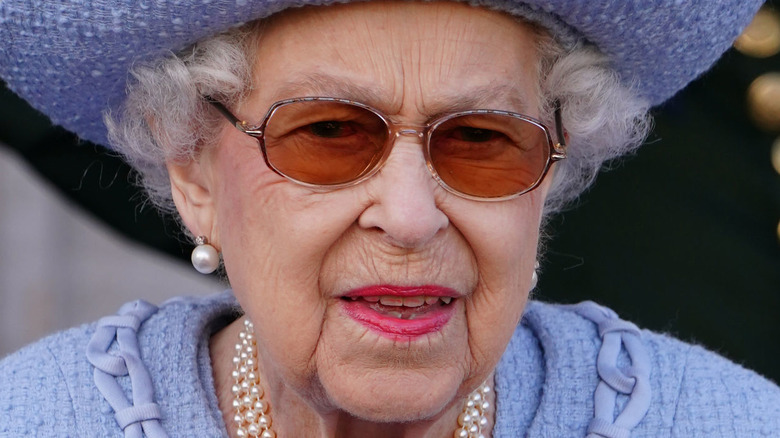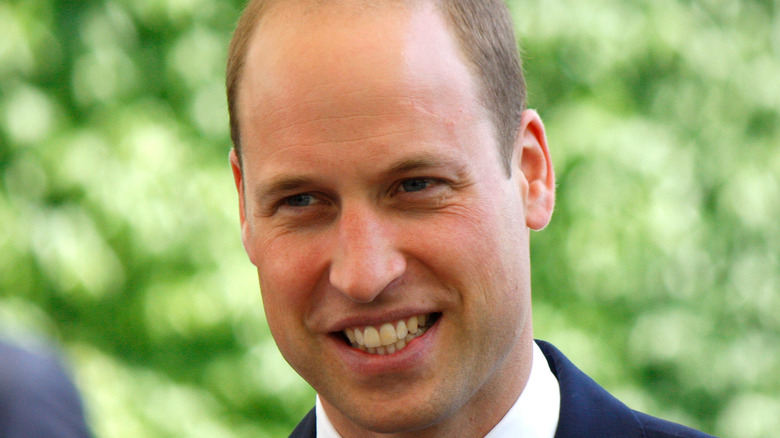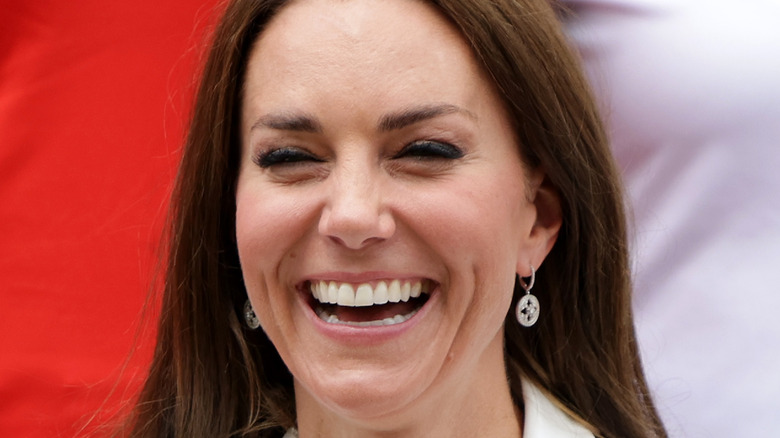What Queen Elizabeth II's Death Will Mean For The Royal Line Of Succession
The British monarchy, and similar monarchies, live and die by the line of succession — that's not hyperbolic but literal. Should a monarch die without a clear heir, the entire monarchy could be thrown into chaos, and in British (as well as world) history, there have been wars over whose claim to the throne was stronger. To get out in front of that, as the monarchy's website notes, the British government has passed a series of laws that lay out, in exacting and unambiguous detail, who gets priority in line to the throne, what happens when someone in that line dies or abdicates, and so on. Further still, the laws were rewritten a few years ago to no longer favor male heirs.
Needless to say, Queen Elizabeth II is not likely to occupy the throne for too much longer, considering her advanced age. When she dies, Prince Charles is almost certain to become king, barring some unexpected calamity. That will put his son, Prince William, first in line to the throne, and he'll assume the title "heir apparent" (plus a few others; more on that in a moment). Every other person in line to the throne will also find their position changed, although as births and deaths within the line occur, things will continue to shift around.
Everyone Moves Up A Spot (Basically)
The remainder of this discussion is based on the assumption that Charles will not precede his mother in death, nor abdicate his place in line for the throne. Once Queen Elizabeth dies, though, Charles moves from "heir apparent" to king. It happens basically instantly, although there will be a lot of i's to dot and t's to cross ceremonially.
According to Reader's Digest, every one after Charles in line moves up one spot. Prince William, now (as of this writing) second in line to the throne, becomes heir apparent and first in line. His son, Prince George, moves into second, followed by Princess Charlotte (third), Prince Louis (fourth) and then, barring another child born to William and Kate, the line of succession "jumps" to William's brother and Charles' second son, Prince Harry (fifth), and then to his son Archie (sixth), and so on.
None of this is likely to have any real effect on people not named William and George and whomever George may father decades from now. However, stranger things have happened: When Princess Elizabeth was born, she was third in line to the throne and unlikely to ever see it, as the first in line (at the time) was her uncle, Edward VIII, and had he produced heirs while he lived, they'd have been in front of her in line. However, Edward abdicated, and that meant his brother (second), Elizabeth's father, became first, and Elizabeth (third) became second and then, of course, queen.
Titles and Styles and Inheritances
Once everyone has been assigned their new number designating their place in line, there will be other matters to sort out. Almost every member of the royal family (at least, the children, grandchildren, and great grandchildren of Queen Elizabeth) has one or more titles; people higher up in the hierarchy have more. There's the Prince of This, the Duke of That, and so on. Some of them are dependent on one's place in line to the throne: The title Prince of Wales is exclusively for use by the heir apparent, according to Britannica. The man who currently holds that title is Charles, but when he becomes king, it will pass on to William. William's titles, including Duke of Cambridge, will pass to his son George, and so on.
One person who's going to have some decisions to make with regards to her titles — decisions that won't be made for her — is Kate Middleton, Duchess of Cambridge (pictured above). When her husband becomes Prince of Wales, according to Reader's Digest, she would theoretically become Princess of Wales. However, she may decide not to use that title out of respect to the last woman who held it: Princess Diana, her husband's mother. What does it mean if she decides not to use that title? Absolutely nothing, as it is literally just words on a page (or pixels on a screen, as it were). Further still, when her husband takes the throne Kate will likely take on the title of Queen Consort, as Parade notes.


